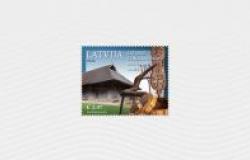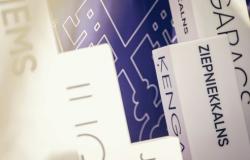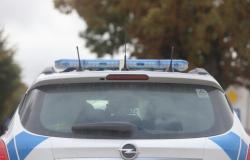
Complexly solving the issues of integration of the Ukrainian civilian population and evaluating the experience so far, it is planned to establish a mandatory requirement for all Ukrainian refugee children to attend Latvian educational institutions from the next school year. On Thursday, April 25, in the discussion organized by the Ministry of Education and Science, the integration of Ukrainian refugees into the education system of Latvia was discussed with representatives of the UN refugee agency, municipalities, non-governmental organizations and responsible ministries.
The Ministry of Interior has prepared and submitted the relevant amendments to the Law on the Support of Civilians of Ukraine for public consultation and will soon be forwarded to the government for consideration.
Kristīne Niedre – Lathere, Deputy Secretary of State for General Education of the Ministry of Education and Science, says: “Distance education does not provide children with the much-needed social contacts, and children’s well-being and psycho-emotional state suffer. Therefore, it is important that all children study in schools in Latvia, where we can also provide all the necessary support both in studies and in helping them integrate into society.”
In order to ensure the well-being of Ukrainian children, promote their integration and solve the issues of educational attainment, the Ministry of Education and Culture offers several solutions to be implemented in schools in order to more successfully integrate into the education system of Latvia. One of the models provides for prioritized learning of the Latvian language in a group or individually, determining the number of hours of subjects for individual learning of the educational program, learning all the planned results that the student can achieve. It is also possible to provide a customized lesson plan for intensive learning of the Latvian language in a group or individually and for the learning of those subjects in which national tests are set at the end of the educational stage (mathematics, Latvian language, foreign language). On the other hand, the implementation of the third model primarily ensures intensive learning of the Latvian language individually or in a group. Such a support measure is implemented for no longer than one school year. The learning of other subjects can be partially implemented.
Starting this school year, Latvia has introduced an inclusive school year for newcomers from Ukraine, where they are offered the opportunity to learn the language before starting regular studies.
In order to ensure the successful integration of Ukrainian refugee children into the Latvian school environment, the Ministry of Education and Culture implements close cooperation with other institutions and organizations involved in the integration of Ukrainian refugees – the Ministry of Welfare, the Ministry of the Interior, the Ministry of Culture, the Directorate of Citizenship and Migration Affairs, municipalities and non-governmental organizations.
During the discussion, representatives of the UN Refugee Agency emphasized in-person education as an essential prerequisite for a child’s well-being and psycho-emotional state, and praised the solutions proposed by the Ministry of Education and Culture for the integration of Ukrainian refugees into the Latvian education system, emphasizing the various solutions for children to integrate into the school environment as successfully as possible, learn the Latvian language, which will help also for successful learning of the educational program.
Currently, respecting the Ukrainian side, a liberal approach is provided in Latvia, allowing to choose the most appropriate form of education – face-to-face or distance learning. Many Ukrainian children choose distance learning, but this approach does not provide documented information on whether children are included in the Ukrainian education system. According to PMLP data, there are 1,842 Ukrainian refugee children in Latvia who are not registered in any educational institution and these children are provisionally receiving their education through distance education in Ukraine. It is important to know whether learners attend school and to gain confidence that they are involved in the educational process and learning the curriculum.
Tags: Ministry Education Culture school year refugee children Ukraine study Latvian schools
-




